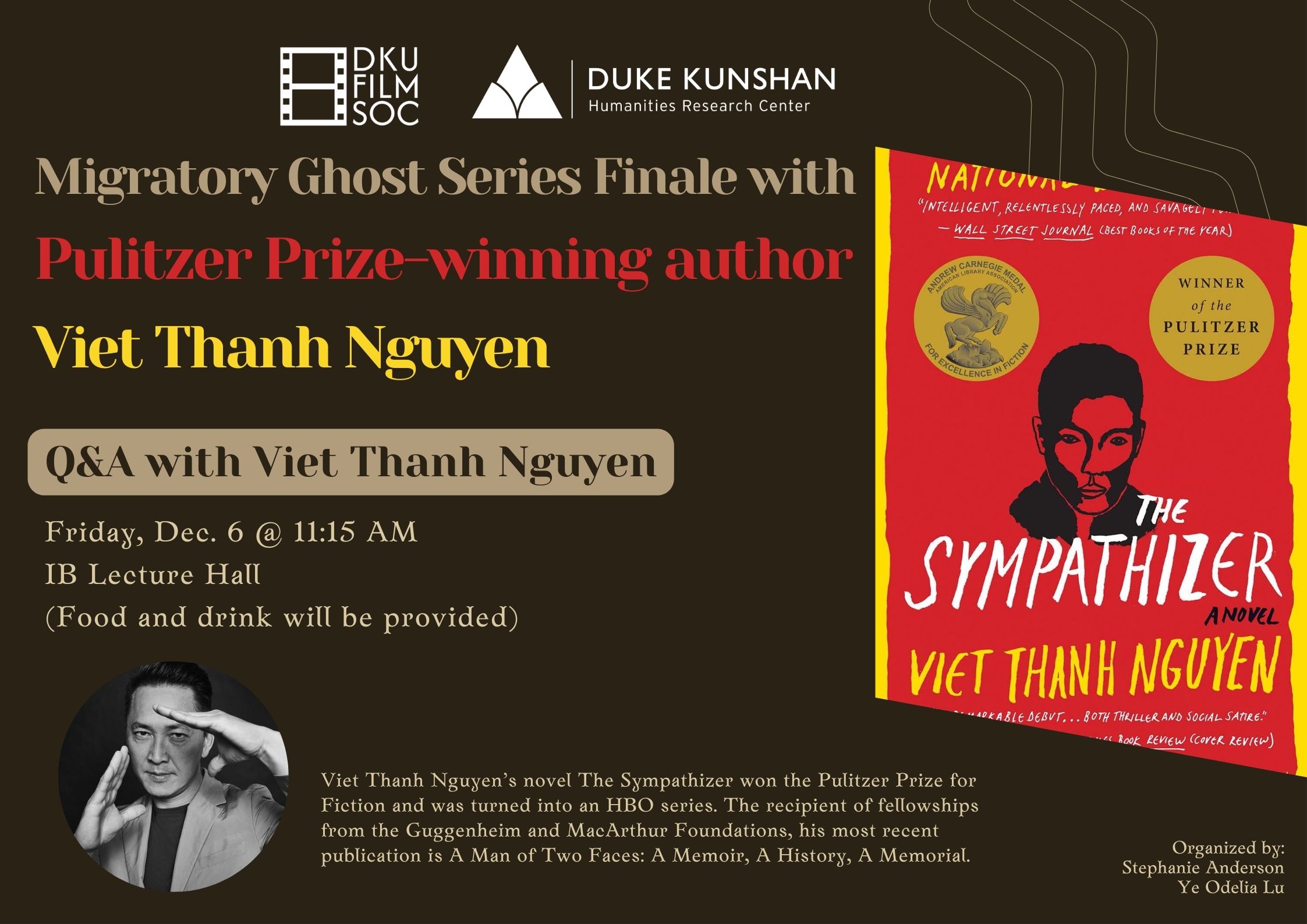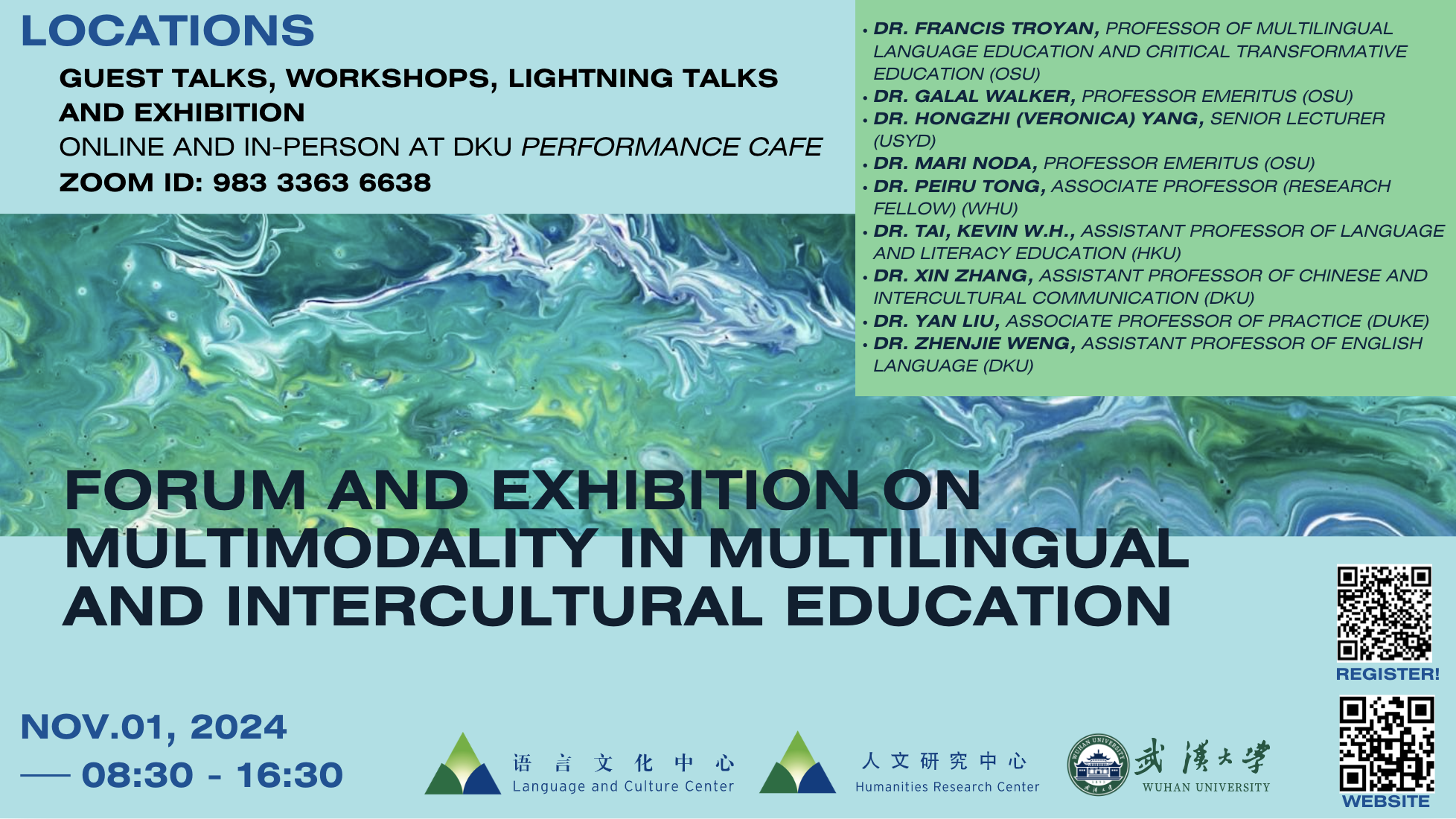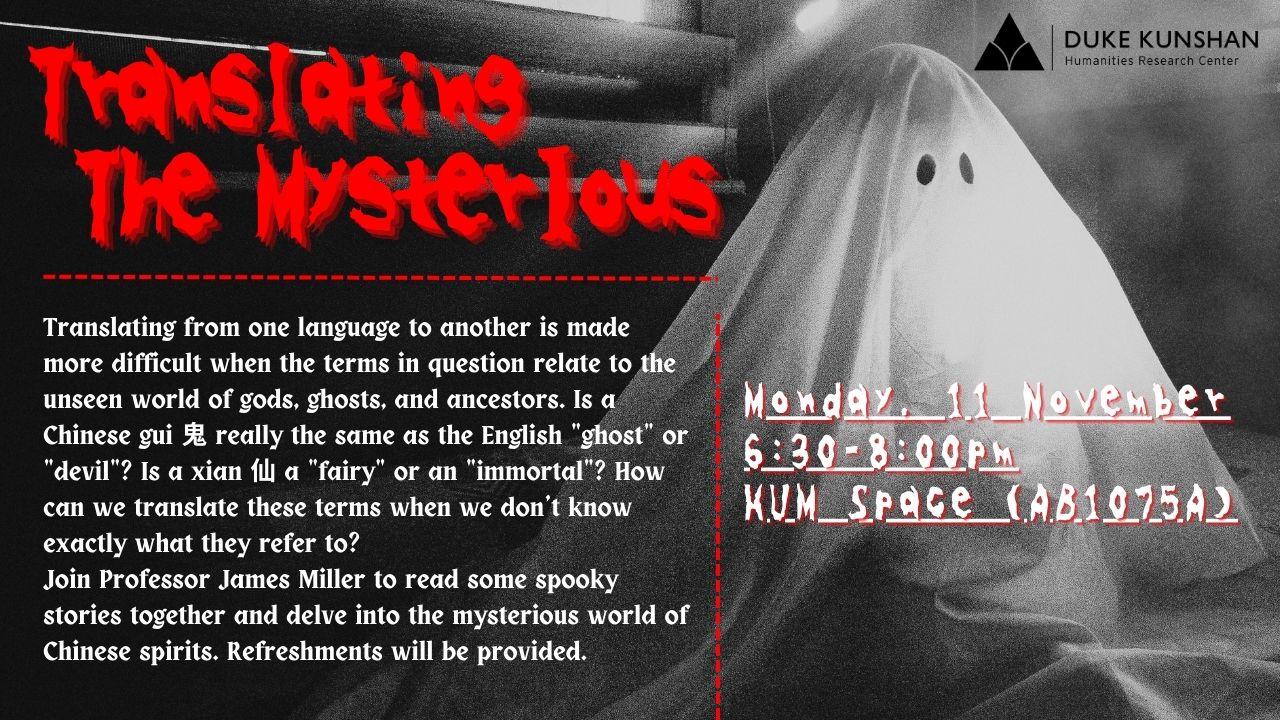Teng Tong 疼痛: Female + Pain Reading Group
 Date: 2/20 (Thursday) 6:30-7:30 pm
Date: 2/20 (Thursday) 6:30-7:30 pm
Location: AB1075A(HUM Space)
Introduction:
Pain, both physical and psychological, is one of the most complex emotions and experiences. In late imperial China (17th to 19th century), shaped by cultural and historical contexts such as Confucian hierarchy and the practice of footbinding, women experienced pain in ways distinct from their male counterparts and from contemporary understandings. This created a unique discourse around gender, the body, and historical conditions. In this reading event, we will begin by exploring two books by historian Dorothy Ko: Teachers of the Inner Chambers: Women and Culture in Seventeenth-Century China and Cinderella’s Sisters: A Revisionist History of Footbinding. Following the reading, we will open up a discussion on the intersection of female experience, pain, and the gendered body.
All are welcome. Pizza and refreshments will be provided on-site. Scan the QR code to join the group and stay updated on future events.
Student Report on Migratory Ghost Reading Event

Pictured left to right: Maya Peak ‘25, Juli Min, Sidney Brown ‘26, and Zhou Sivan.
By Rebecca Combs
On September 22nd, 2024, the HRC welcomed authors Juli Min and Zhou Sivan, along with Migratory Ghost DKU student winners Maya Peak ‘25 and Sidney Brown ‘26, to read their award-winning works in an immersive session. About 20 students and 8 faculty members attended.
The event began with the announcement of both student winners: Maya Peak, Class of 2025 Global Cultural Studies – Literature Track Major, and Sidney Brown, Class of 2026 Global Cultural Studies – Literature Track Major. This was promptly followed by each of them reading their submitted work to the attendees.
First, Maya read her short story titled Metamorphoses: Homunculus, a frankenstein-esque telling of a scientist, their life-given experiment, the gruesome steps of the process, and the emotionally painful reality of their creation having autonomy: “it’s a whole person who treats me like a mystery for not knowing what it is”.
Next, Sidney read her four poetry pieces titled “I Believe I Can Fly”, “Lost at Sea”, “Tempest”, and “The Great Escape”. Each explored the complexities of negative emotions and captured themes of transformation, change, and letting go: “for this moment I am airborne, looking down at this swath of land and empty bodies limping with their strings sewn up”. (“I Believe I Can Fly”)
Following the student winners, Shanghai-based Korean-American author and Harvard University graduate Juli Min read a section of her book Shanghailanders. Published in May of this year, Min’s work of fiction covers Shanghai cosmopolitans told backwards in time. In light of the theme of migratory ghosts, New York Times reviewer Jean Kwok states: “having knowledge of these characters’ futures before we know about their past makes stumbling on their bygone days all the more touching”.
Finally, Hong-Kong-based Malaysian poet and author Zhou Sivan read from his book of poems “The Geometry of Trees”. Published in 2022, Sivan details themes of queer desire through the trees, their trunks, and language, revealing how their growth has stayed with him throughout his entire life. Much like the lurking nature of ghosts, Sivan emphasizes how “in the background, trees dramatize the architectural displays of empire”.
Faculty, authors, and student-winners were treated to a dinner. The event was a complete success, student and faculty attendees alike having been immersed in prose which illuminated the starkly different facets of migratory ghosts–whether fear, folklore, our pasts, or periods of transition and change.
Migratory Ghost Series Finale with Pulitzer Prize-winning author Viet Thanh Nguyen : Screening of The Sympathizer,Episode 01 & QA Section

Time: Thursday, Dec. 5 @ 6:30 PM
Location: CCTE Theater
Food and drink will be provided.

Date: December 6
Time: 11:15 AM
Location: IB Lecture Hall
About Viet Thanh Nguyen:
Viet Thanh Nguyen’s novel The Sympathizer won the Pulitzer Prize for Fiction and was adapted into an HBO series. A recipient of Guggenheim and MacArthur fellowships, his most recent publication is A Man of Two Faces: A Memoir, A History, A Memorial.
Organized by:Stephanie Anderson, Ye Odelia Lu
History Through a Student’s Eyes: Research Assistant & Signature Work

Date and Location: Dec. 4, AB 1079 , 5 to 6pm.
On Wednesday, Dec. 4, from 5-6pm, Haiyi Guo will share insights from his experience working as student researcher for Prof. Zach Fredman for his recently published book The Tormented Alliance and for Prof. Fredman’s new project on the “Rest and Recreation” program in Vietnam. Haiyi will also present his own Signature Work project and receive feedback and comments from the community.
Sponsored by: HRC’s Archives and History Initiative
Student Report on Forum and Exhibition on Multimodality in Multilingual and Intercultural Education

Report by Delfin Kaplan, class of 2027
On November 1st, 2024, Dr. Xin Zhang, assistant professor of Chinese and Intercultural Communication from the Langauge and Culture Center at Duke Kunshan University(DKU), and Dr. Peiru Tong, associate professor of International Education at Wuhan University (WHU) co-hosted the Forum and Exhibition on Multimodality in Multilingual and Intercultural Education. A collaboration between DKU and WHU, the forum and exhibition took place in-person at DKU, though it was also attended by audience online through Zoom and on Spot, the latter being a metaverse exhibition. The one-day forum consisted of invited talks, workshops, and faculty lightning talks by professors across multiple acclaimed universities beyond DKU and WHU, including Duke, University of Sydney, the Ohio State University and University of HongKong, and a student-led artwork exhibition.
The forum started with a welcome speech by the senior director of Language and Culture Center (LCC) Dr. Don Snow, followed by Dr. Peiru Tong’s introducation of the “Multimodal Intercultural Education Interdisciplinary Innovation Platform”, co-funded by the WHU and DKU Joint Research Platform Seed Funding and the Kunshan Municipal Government Research Funding, and the DKU HRC Small Event Grant.
The talks and workshops on Multimodality in Multilingual and Intercultural Education were led by nine accomplished professors: Dr. Francis Troyan from Ohio State University and Dr. Zhenjie Weng from Duke Kunshan spoke about the development of language teacher identity through photo-elicitation in TESOL teacher education, which is a reflection technique used to explore the connection between emotions and the teachers’ identities. They also shared some reflections from participating teachers. Dr. Yan Liu gave a speech on the multimodal approaches to teaching Chinese, focusing on the power of visual arts, followed by a collaborative presentation between Dr. Xin Zhang from Duke Kunshan University and Dr. Peiru Tong from Wuhan University on the visual narratives of international students’ multilingual identity (co)construction during their long-term studies abroad in China. After that, Dr. Hongzhi (Veronica) Yang from the University of Sydney shared her insights on the use of generative AI to create multimodal language learning resources.
After a lunch break to allow participants to explore the exhibition and discuss the contents of the morning presentations, Dr. Mari Noda and Dr. Galal Walker from the Ohio State University led a pedagogy workshop on applying performance watch tasks in language and culture classrooms. Dr. Tai, Kevin W.H. from the University of Hong Kong, led the a second workshop on research methodology for understanding the construction of translanguaging spaces in multilingual classrooms, focusing on insights from combining multimodal conversation analysis with interpretative phenomenological analysis. Another highlight of the forum was the faculty-led lightning talks which showcased various teaching and research projects by faculty in the Language and Culture Center at DKU, and faculty from peer institutions including Wuhan University and University of Sydney.
The student artwork exhibition consisted of artwork and reflections created by DKU, WHU, and University of Sydney (USYD) students, as part of a collaborative research project between Dr. Xin Zhang and Dr. Peiru Tong. Student participants were asked to reflect on their identity as international students in an intercultural student cohort and their experiences with multilinguality over two months with weekly check-ins, which were then processed through an extensive selection process and displayed by two student workers, Delfin Kaplan and Davit Kavkasyan, supervised by Dr. Xin Zhang. Both students responsible for the exhibition were also part of the preliminary artwork collection process in 2023.
Throughout the weeks leading up to the exhibition, Delfin and Davit individually inspected every single one of the dozens of artworks and the accompanying reflection and chose around 30 final artworks to be presented in the exhibition. The forum attendees could view these posters on the day of the exhibition, and they will remain visible in the foyer outside Performance Cafe in CCTE for another month. The artwork can also be viewed virtually via a metaverse exhibition.
In curating the exhibitions, the two student workers independently handled the budget, acquired the materials, communicated with the creators of the artworks, set up the exhibition, and they gave a short speech in the forum to talk about their experience and what they’ve learned. Both students reported that seeing the perspective of other international students was ‘eye-opening’ and that this exhibition was especially important to them due to both of them being the only students from their countries.
Book Proposal Workshop: Incendiary Cities: Fire, Technology, and the Origins of Modern Emergency Response in Germany and the U.s.,1800-1900
 Date: November 7 (Thursday)
Date: November 7 (Thursday)
Time: 12-1pm
Location: IB 2025
On November 7, Professor Jan Hua-Henning invites faculty and students to join his book proposal workshop. We’ll discuss his book proposal for Incendiary Cities: Fire, Technology, and the Origins of Modern Emergency Response in Germany and the U.S., 1800-1900. Incendiary Cities explores how and why emergency fire services evolved during the nineteenth century and who they deemed worthy of protection.
The book proposal as a genre of writing is not only interesting for those planning to publish a book. It also shares many similarities with research and grant proposals. Book proposals highlight the novelty of an argument and research agenda while also providing an overview of the targeted audience. The workshop is a great way to learn about academic writing and research and to get to know faculty at DKU.
We will be joined by Scott G. Knowles, a historian of disaster worldwide and Professor at the Korea Advanced Institute of Science and Technology. Knowles is the author of The Disaster Experts and is currently completing two new books: The United States of Disaster; and Slow Disaster. Students are welcome to join the workshop. Food will be provided.
If you would like to read the book proposal in advance, please reach out to our student coordinator, Sydney Brown, at sydney.brown@dukekunshan.edu.cn.
Forum and Exhibition on Multimodality in Multilingual and Intercultural Education

Join us for the Forum and Exhibition on Multimodality in Multilingual and Intercultural Education, co-organized by Duke Kunshan University (DKU) and Wuhan University (WHU) on November 1st, 2024. This exciting one-day hybrid event will feature guest talks, workshops, lightning talks, and a student work exhibition both online and in-person. Participants from DKU, WHU, The Ohio State University (OSU), University of Sydney (USYD), and more will explore how multimodality enhances multilingual and intercultural education. Don’t miss this chance to engage with scholars, share teaching practices, and discover student visual narratives on identity transformation.
For more information, visit: https://sites.duke.edu/mmie/
Translating the Mysterious
Translating the Mysterious

HUM Space (AB1075A)
Monday 11 November, 6:30-8:00pm
Translating from one language to another is made more difficult when the terms in question relate to the unseen world of gods, ghosts, and ancestors. Is a Chinese gui 鬼 really the same as the English “ghost” or “devil”? Is a xian 仙 a “fairy” or an “immortal”? How can translate these terms when we don’t know exactly what they refer to?
Join Professor James Miller to read some spooky stories together and delve into the mysterious world of Chinese spirits. Refreshments will be provided.
Exploring the Digital Archives of the English East India Company
 Time: Thursday, October 24, 12 noon – 1 pm
Time: Thursday, October 24, 12 noon – 1 pm
Location: LIB 1115
Presenter: Titas Chakraborty
Join Us for an Engaging Workshop: Exploring the Digital Archives of the English East India Company with Prof. Titas Chakraborty!
Discover the rich resources of the British Library and learn how to effectively navigate the digital archives of the English East India Company. This workshop will cover:
- Exploring the British Library website
- Utilizing various guides for research support
- Discussing related research questions
Don’t miss this chance to explore the past through a modern lens!
Food will be provided!
